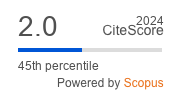Open hardware as an experimental innovation platform: preliminary research questions and findings
DOI:
https://doi.org/10.23726/cij.2017.462Keywords:
Open hardware, experimental innovation platform, knowledge infrastructure, dissemination.Abstract
In this article, we explore the concept of Open Hardware (OH) as an experimental innovation platform to take a first step in the study of the institutional and sociotechnical conditions for fostering and advancing Free and Open Source projects at the European Organization for Nuclear Research, CERN. For our purposes, OH will be described as a highly adaptable platform for present and future research infrastructures. As part of the contemporary movement for “Open Science,” OH will be examined with respect to its actual and potential contributions to the development of common tools and infrastructures for large-scale scientific collaborations. The primary data we use was gathered by the CERN Knowledge Transfer group in October 2016 through an online survey in addition to face-to-face interviews. Our preliminary findings point to the need for establishing different modes of institutional support beyond CERN and outside the hobbyist market to help advance cultures of collaborative hardware development in the sciences.
Downloads
Published
How to Cite
Issue
Section
License
Authors who publish with this journal agree to the following terms:
- Authors retain copyright and grant the journal right of first publication with the work simultaneously licensed under a Creative Commons Attribution License that allows others to share the work with an acknowledgement of the work's authorship and initial publication in this journal.
- Authors are able to enter into separate, additional contractual arrangements for the non-exclusive distribution of the journal's published version of the work (e.g., post it to an institutional repository or publish it in a book), with an acknowledgement of its initial publication in this journal.
- Authors are permitted and encouraged to post their work online (e.g., in institutional repositories or on their website) prior to and during the submission process, as it can lead to productive exchanges, as well as earlier and greater citation of published work (See The Effect of Open Access).


